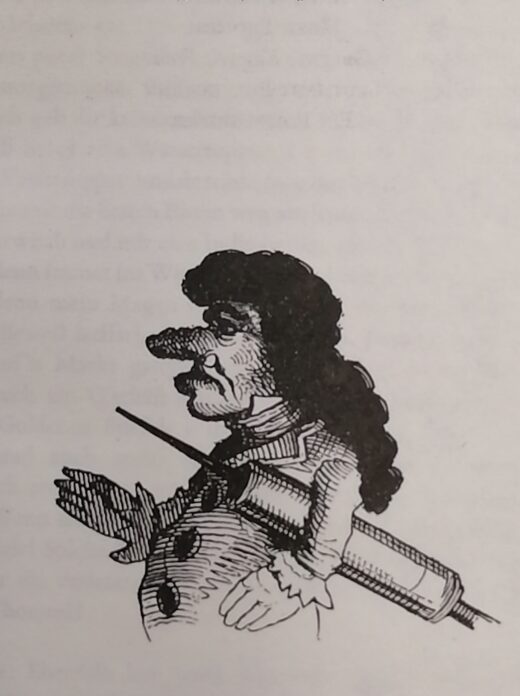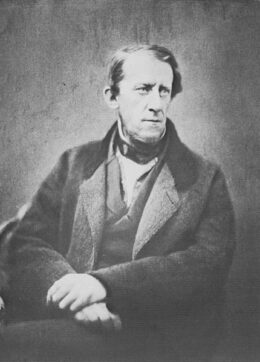
Printed
20 pages
Author(s)
Die Prüfung
Ein beispielloses Spektakelstück
This play appeared in Pocci's first collection of Kasperl's plays, published in 1855 under the title Neues Kasperl-Theater. The six short plays it contains were certainly among those that Pocci played for his children in the Ammerland house on the shores of Lake Starnberg. The author does not seem to have considered distributing them outside this private circle at first, but he nevertheless allowed the puppeteer Josef Leonhard Schmid to bring them to the stage of his new puppet theatre. The subject of Die Prüfung is an old farcical motif which, in the German tradition, can be traced back to the play Der tote Mann [The Dead Man] by Hans Sachs (1494-1576).The clyster, an essential tool of the (false) doctor, is also borrowed from classical literature: it can be found, for example, in Moliere’s The Imaginary Invalid.
Wife's fidelity put to the test by husband's false death
Casperl gets drunk with the hunter Thomerl and Thomerl offers to put Casperl’s wife Grethl to the test: Casperl has to fake an illness that will lead to his death, and Thomerl, disguised as a doctor, will come and certify the death. As soon as Casperl is pronounced dead, Grethl tries to console herself in the arms of Lieutenant Pulvermann. The fake dead man is resurrected, a fight ensues in which Pulvermann is killed and the corpse is taken backstage. A police officer comes to seize Casperl, but husband and wife join forces against the impetuous man, who is forced to give in to the violence. To celebrate their reconciliation, Casperl and Grethl go to the inn, where they also meet with Thomerl.
First performance
Münchner Marionettentheater
Publications and translations
Franz Pocci: Neues Kasperl-Theater, Stuttgart, Gebrüder Scheitlin, 1855
Franz von Pocci: Neues Kasperl-Theater, editio Monacensia, München, Allitera Verlag, 2009
